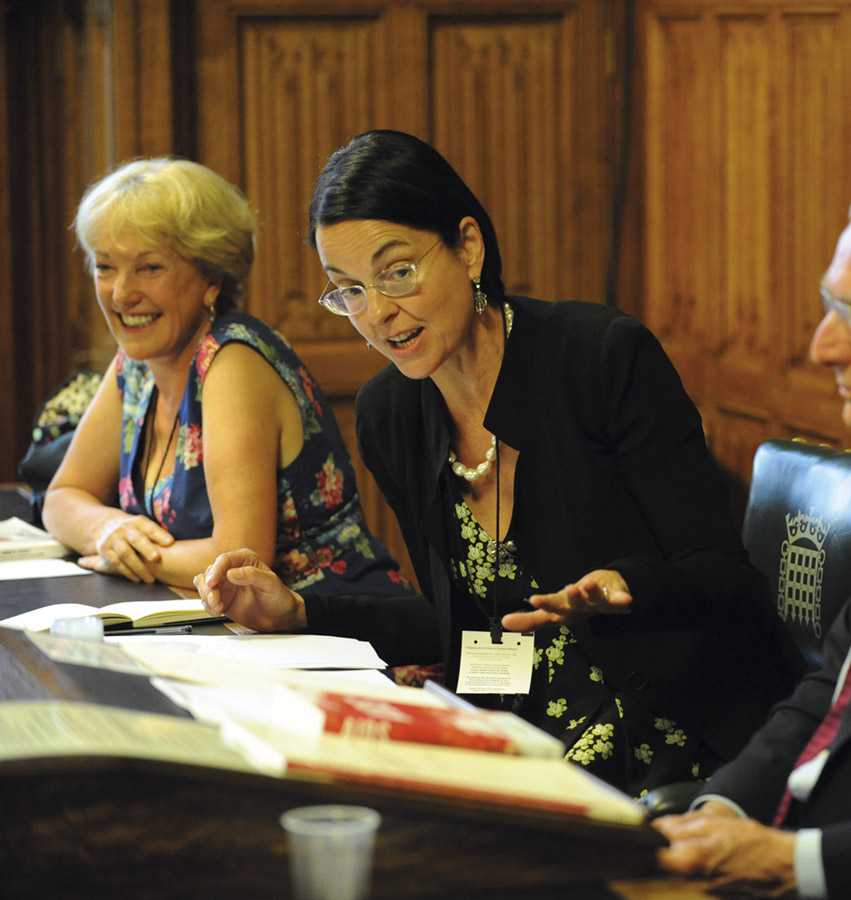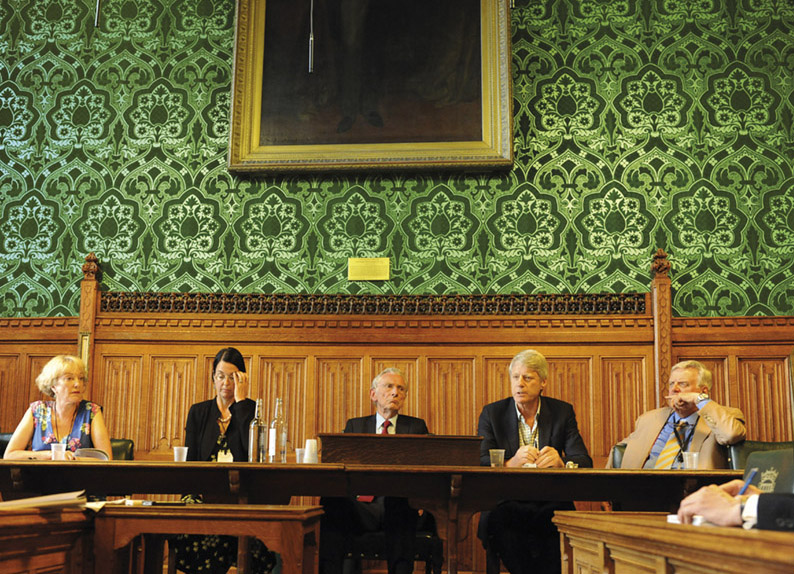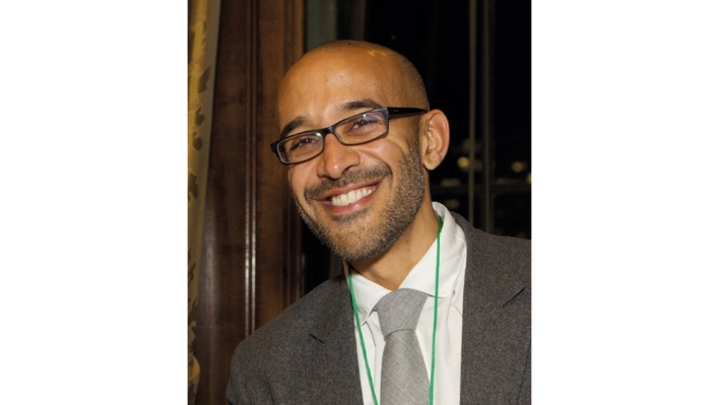BBC Charter renewal will center on funding. Steve Clarke hears the opening shots of the campaign.
In the age of the iPlayer, paying for BBC services is arguably straightforward no longer. As a result, the key debate around renewal of the BBC’s Royal Charter in 2016 is expected to focus on the future of the licence fee and alternative means of paying for the corporation’s services.
Could the BBC’s traditional form of funding – already top-sliced to fund the World Service, local-TV and S4C, among other things – be replaced by subscription? Or perhaps a hybrid financing model might be preferable?
And how practical would it be to extend the licence fee to embrace the corporation’s online output?
This was the background to a stimulating and occasionally fractious debate, “Future of funding for the BBC”, held in June under the auspices of the RTS All Party Parliamentary Group at the House of Commons.
A distinguished panel, ably chaired by Lord Fowler, was effectively split down the middle between the traditionalists, who want to preserve the licence fee (Lord Grade and Claire Enders), and those in favour of introducing subscription (Lis Howell and Nick Ross) to bankroll the Beeb.
Grade, a former Chair of the BBC Governors, opened the talking shop. He argued there were three British institutions that, in theory, looked anachronistic in the modern world, but in practice worked well: the hereditary monarchy, the House of Lords and the BBC.

“You have to believe there is something in these three institutions that connects with the British public,” he said. Even so, the BBC is facing “an incredibly difficult few years.” During the last Charter review the argument revolved around governance and structure. This time the key issue would be funding.
“The fundamental principle that underlies all broadcasting is that there is a direct correlation between the source of funding and the kind of programmes that come out the other end,” Grade continued. “The BBC has a monopoly of revenue at the moment. If you put the BBC into competition for revenue it would change the very nature of the beast.”
If the public appetite is for a risk-taking, public service broadcaster that reflects the nation back to itself, the best way to fund the BBC would be to keep the licence fee, he argued.
For 88 years this funding model has worked. The current £145.50 fee is “too high” – but to abolish the licence fee would destroy the BBC as we know it, concluded Grade.
Nick Ross, the former Crimewatch presenter, disagreed. “I am passionately in favour of the BBC… but I fear we are driving the BBC to extinction,” he warned.
No one expects the level of the licence fee to increase substantially in the coming years, he said. Meanwhile, the BBC’s rivals, especially new platforms such as Netflix, are increasing their investment in content. “The BBC is shrinking all the time compared with what is happening elsewhere,” Ross opined.
However, he said he’d been around long enough to appreciate the power of the pro-status quo BBC lobby: “Never underestimate the tenacity of the licence fee. People have been predicting its demise for decades.”
Ross expects the next government to renew the licence fee one final time – but after that it would be toast.
Subscription, he believes, offers the best protection for the BBC in the long term: “All the arguments against subscription fail… Subscription is transparent, fair, democratic and universal.”
Lis Howell, the ex-Sky News executive who is Director of Broadcasting at City University, agreed.
She favours introducing a model she described as “combination funding” to replace the licence fee.
"We’re not all happy to pay the licence fee for ever and ever. Lots of nice, middle-class people are thinking twice about it."
Her case was that online catch-up via the iPlayer is undermining the legitimacy of a licence fee that – technically – people pay in order to receive a live television signal.
“Tonight you can go home and watch BBC content on the iPlayer and watch the news on your phone – all for free,” said Howell.
With no incentive for people to pay the licence fee, she advocated a mix of a lower fee (which would be top-sliced) to fund a basic BBC package, alongside a fuller service for those prepared to pay a premium.
Even now, she said, BBC services are financed “by a mishmash of funding”, including advertising on BBC Worldwide’s overseas channels.
Moreover, there are parts of the UK where support for the licence fee is waning: “Half the people in Scotland do not think the BBC is value for money. It’s not as cosy as it seems. We’re not all happy to pay the licence fee for ever and ever. Lots of nice, middle-class people are thinking twice about it.
“We need to think about what is going to happen [in the future] because the licence fee, given disruptive technology, is not going to last.”
Lord Fowler intervened and asked if Howell’s idea of a reduced licence fee would embrace the funding of BBC Radio.

“Yes, it would. That’s difficult, because commercial radio doesn’t like the licence fee as they think it takes the oxygen out of the radio environment.
“But when you think about the achievements of BBC Radio, I’d definitely put that in my package.”
Ross suggested that if Radio 4 was financed by subscription, “most people here” would be happy to fork out up to £40 a year for Middle England’s listening choice.
It was time for Claire Enders, CEO of Enders Analysis, to enter the fray. She said she had the evidence to prove the advocates of subscription were plain wrong. Far from being financially outpaced by its rivals, the recent post-recession economic re-balancing has seen the BBC’s income increase by 1% a year since 2010.
This is despite the Coalition Government’s licence-fee freeze and is due to more households paying the licence fee and larger profits from BBC Worldwide, which encompass subscription-based channels.
“The rebalancing that has occurred has been beneficial to the entire sector,” insisted Enders, who added that the BBC spent £900m on new network content, compared with Netlfix’s spend of around £1bn.
Furthermore, the VoD platform’s budget is spread over a market of 300 million, rather than the BBC’s 63 million people.
Warming to her theme, she continued: “The majority of audiences still watch and listen to BBC programmes traditionally. Only 3% of BBC viewing is via the iPlayer.”
Question & answer
On decriminalising non-payment of the licence fee
Lord Grade: I think the argument [around Charter renewal] is going to be less about subscription versus licence fee than the issues of criminality and compulsion.
We all feel a bit squeamish about the fact that you can go to prison if you don’t pay the fine for not paying the licence fee. You don’t go to prison for not paying the licence fee, but you can go to prison for contempt of court if you don’t pay the fine.
If there is a way to decriminalise non-payment, that would be a good thing, but not – and this is very, very important – at the cost of compulsion.
On paying to use BBC iPlayer
Lord Grade: You can encrypt the iPlayer and pay an additional fiver and you get a code enabling you to watch iPlayer on your devices.
Lis Howell: It is not as simple as that because people at the BBC are unhappy about a charge on the iPlayer… Even if what you say is true, I don’t see any move towards doing it.
On the BBC’s need for an inhouse production studio
Nick Ross: Twenty years ago people said it was barking for the BBC not to have inhouse production… It’s that entrenched conservatism, which says it’s barking to try out the new. But we’ve gone out to the market and quality hasn’t been diminished. We’ve enhanced it.
Claire Enders: The BBC already commissions 48% of its network programmes from independents.
There is a very good gradual process occurring in terms of building super-indies that can make programmes on multi-million-pound budgets…That’s what the BBC is all about.
Lord Grade: The fact that producers can join or set up as independents and make a lot more money means there is a constant turnover of staff at both the BBC and ITV.
One of the strands of the Charter review debate will be the BBC having to justify why it still needs to make drama and light entertainment programmes.
News and current affairs are a separate discussion… The BBC has a very hard argument to make about why it continues to need big, inhouse production departments.
Public support for the licence fee is widespread: “Fifty seven per cent of the public thinks the licence fee is good value.”
As an immigrant (Enders is the daughter of a US diplomat) she stressed that she buys into all the great British institutions. These include the university system, the NHS – and the BBC, which accounts for a third of all media consumption in the UK.
“I am actually someone who would pay more for the BBC, but I am perfectly content with the amount that I pay,” Enders declared.
Those aged 45-65 all consume a lot of TV and radio – and vote, she added. “So if anyone in Parliament wishes to question public service broadcasting, I dare you to do so.
“The system today is fair. The entire ecosystem is a wonder to behold…
The BBC is the foundation of the UK’s audio-visual economy, including exports accounting for £30bn…
“These are radical moves that people are talking about and they are completely unnecessary.”
With the temperature in Committee Room 9 at the House of Commons beginning to rise, Lord Grade added fuel to the fire. Responding to Ross’s idea that people would be happy to pay to watch BBC programmes they were unfamiliar with, Grade told him that all successful subscription-TV services rely on a tried-and-tested menu of movies, sport and proven hits.
“It’s programmes such as Strictly Come Dancing that drive subscription,” said the former BBC One Controller. “And all the people – including pensioners and low-income groups who cannot afford the subscription – will be denied the programmes they absolutely love.
“It’s barking, it doesn’t work unless you have programmes – movies, sport and pornography – that people will recognise. That is the only basis on which they will pay for subscription.”
Expect this debate to run and run – and get hotter, still – as 2016 approaches.
‘Future of funding for the BBC’ was an RTS All Party Parliamentary Group event held at the House of Commons on 24 June and produced by Sue Roberston.







